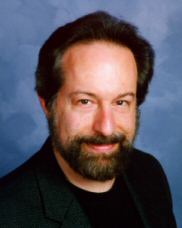A Quote by Tad Williams
People in science fiction flicks always seemed to know useful things about the places time travel took them. But what if the time traveler had been only an average history student? What then?
Related Quotes
It had also been my belief since I started writing fiction that science fiction is never really about the future. When science fiction is old, you can only read it as being pretty much about the moment in which it was written. But it seemed to me that the toolkit that science fiction had given me when I started working had become the toolkit of a kind of literary naturalism that could be applied to an inherently incredible present.
Science fiction is the most important literature in the history of the world, because it's the history of ideas, the history of our civilization birthing itself. ...Science fiction is central to everything we've ever done, and people who make fun of science fiction writers don't know what they're talking about.
Today, we know that time travel need not be confined to myths, science fiction, Hollywood movies, or even speculation by theoretical physicists. Time travel is possible. For example, an object traveling at high speeds ages more slowly than a stationary object. This means that if you were to travel into outer space and return, moving close to light speed, you could travel thousands of years into the Earth's future.
For us, time travel is synonymous for the belief in all the things that are not seen, and also for the most outlandish claim that you could possibly make. To say that you're a time traveler is weirder than saying you're an alien. It's really strange to sit down in a basement and be face-to-face with someone who claims to be a real time traveler. So, for us, it was about the nuts and bolts of what it would be like, if you were face-to-face with someone who claimed to be from the future.
Remember, science fiction's always been the kind of first level alert to think about things to come. It's easier for an audience to take warnings from sci-fi without feeling that we're preaching to them. Every science fiction movie I have ever seen, any one that's worth its weight in celluloid, warns us about things that ultimately come true.
They were not friends. They didn't know each other. It struck Tom like a horrible truth, true for all time, true for the people he had known in the past and for those he would know in the future: each had stood and would stand before him, and he would know time and time again that he would never know them, and the worst was that there would always be the illusion, for a time, that he did know them, and that he and they were completely in harmony and alike. For an instant the wordless shock of his realization seemed more than he could bear.
Science fiction, as I mentioned before, writes about what is neither impossible nor possible; the fact is that, when the question of possibility comes up in science fiction, the author can only reply that nobody knows. We haven't been there yet. We haven't discovered that yet. Science fiction hasn't happened.




































